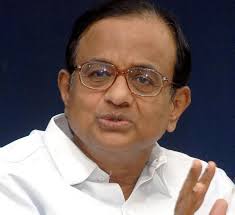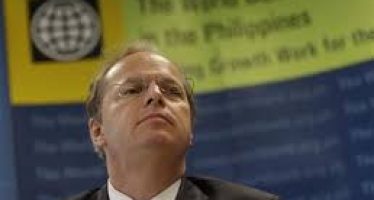Indian Rupee Looking for a Line in the Sand

Palaniappan Chidambaram
Earlier this week, Indian Finance Minister Palaniappan Chidambaram unveiled a comprehensive – and long-awaited – plan to improve the country’s crumbling infrastructure by reviving no less than 36 stalled projects.
The government has earmarked over $28bn (€21.2bn, £17.7bn) to finance major undertakings in the energy, communications and transport sectors. Mr Chidambaram hopes that the plan will also give the economy a significant boost while improving its underpinnings: “The message we are sending is that the investment cycle has restarted and we are pushing it.”
In February, the International Monetary Fund (IMF) chastised the Indian government for failing to ensure investments in infrastructure kept pace with the economic expansion registered over the first decade of the century. In its report, the IMF expects the creaky infrastructure to be the main cause of the sharply lower growth rates predicted for the coming years.
The plan presented by Finance Minister Chidambaram comes on top of a bilateral deal with Abu Dhabi that will see the emirate invest up to $50bn in infrastructure projects on the subcontinent. Though still short on specifics, the agreement was made possible by New Delhi relenting in its opposition to Abu Dhabi-based Etihad Airways buying a 24% stake in Jet Airways, India’s second largest carrier. The Indian government is also keen to sign an Investment Protection Pact with the UAE. This is seen as a way to unlock further investments.
“The message we are sending is that the investment cycle has restarted and we are pushing it.”
However, Mr Chidambaram’s announcement on Tuesday did not succeed in rallying the markets. The already battered Indian rupee again approached last week’s record low against the dollar on concerns that deficit targets will not be met. Since last June, the rupee has slid from 56 against the dollar to 66.
The finance minister assured the markets that the controversial – and at $20bn annually, rather expensive – Food Security Bill approved by parliament on Monday will not lead to increased deficit spending. The new law aims to eliminate malnutrition by providing subsidized food to about two-thirds of the population. “After paying for the Food Security Bill we will still be on target for the fiscal limits set earlier by this government.” Mr Chidambaram also said that the rupee is now trading below its “true level” and will shortly bounce back.
Meanwhile, the Reserve Bank of India (RBI) – sitting on a hoard of about $300bn in foreign reserves – refuses to expand its currently timid interventions to something more substantial in order to prop up the currency. “After a volatile and hectic day, the RBI will step into the market at around 4:30 pm to buy up some rupees. That’s like cosmetic surgery and leaves the market opening with a gap the next day,” says Partha Bhattacharya of Mecklai Financial in Mumbai.
These mini-interventions have cost RBI some $14bn in foreign exchange since March. “We now need the bank to draw a line in the sand and stick to it by putting its full weight on that line.” However, Mr Bhattacharya expects the markets to remain jittery: “The rating agencies will not take Mr Chidambaram on his say-so and will want to determine the real impact of the Food Security Bill on the budget.”
According to Chief Investment Officer G. Chokkalingam of Centrum Wealth Management in Mumbai, India is plagued by an “unholy trinity” of issues: “There are clear pressures on the fiscal deficit; the economy suffers a greater than expected slowdown in its growth; and we now have to deal with an unstable currency as well.”
Mr Chokkalingam doesn’t expect much from the ambitious investment plan that has now been rolled out: “These projects have long gestation periods, measured in years rather than months. Their impact on the economy will not be felt anytime soon. As such we do not expect these investments, however necessary they are, to contribute in any meaningful way to increased economic growth.”
Finance Minister Chidambaram, however, remains quite unfazed and appeals to that quintessential of Indian character traits: Patience. “We just have to remain patient and be firm. With that, the rupee will regain its true level.”
You may have an interest in also reading…
World Bank: Philippines Poised for More and Better Jobs
By Axel Van Trotsenburg, World Bank Vice President for East Asia and Pacific If the first quarter of this year
MIGA (World Bank): Islamic Finance – A Growing Source of Capital for the Developing World
The World Bank has its eye on Islamic finance, and with reason. Islamic finance’s recent globalization – in both Muslim
World Bank: Sustained Global Solidarity Needed to Achieve Global COVID-19 Recovery
The pandemic has affected virtually everyone in the world, but its impacts have been hardest on the poor and vulnerable,
















































































